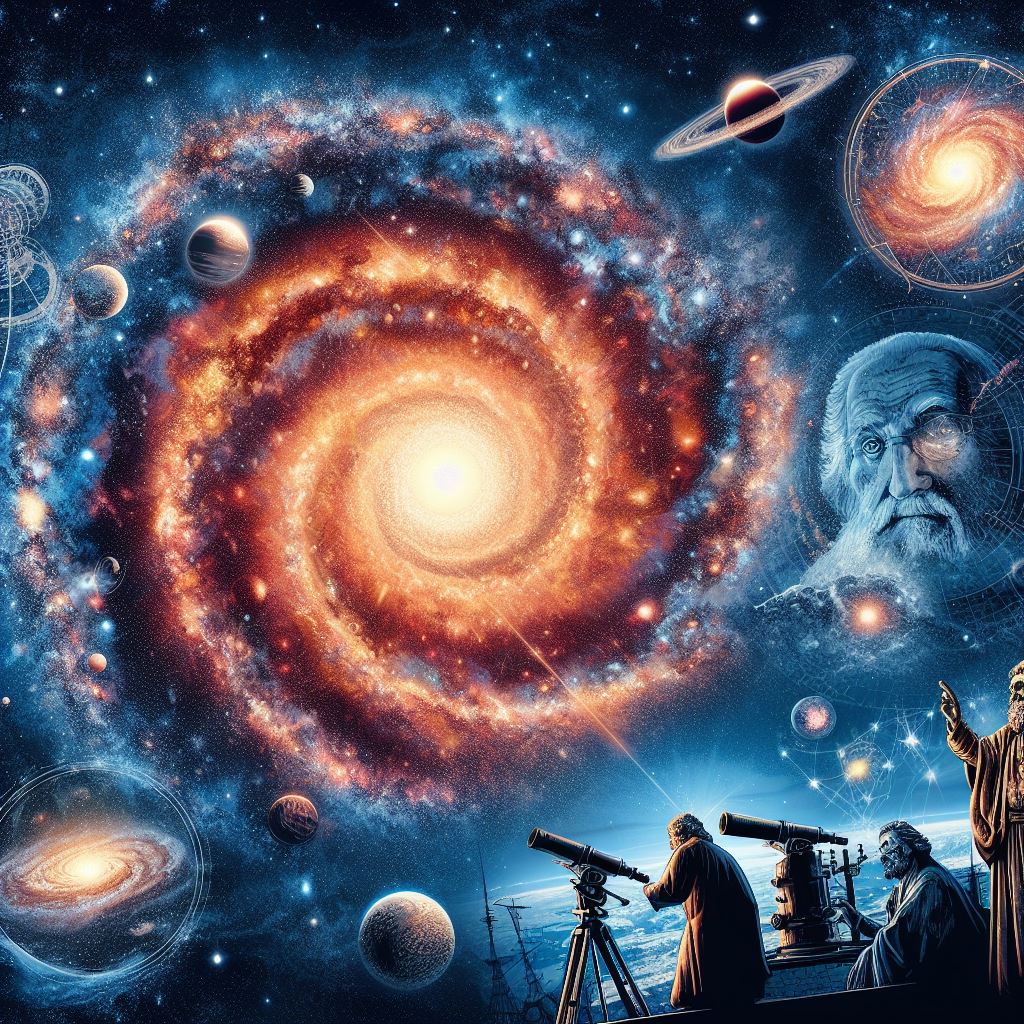
Unraveling the Mystery: Where is the Universe's Center?
Introduction
The quest to understand our universe's mysteries has perplexed humans for centuries. One fundamental question has been: Where, if anywhere, is the center of this vast expanse? This article delves deep into cosmology, revealing insights from ancient times to modern-day discoveries, answering the age-old question that interests both amateur astronomers and seasoned cosmologists alike.
Understanding the Universe's Structure
The Observable Universe
-
Definition: The observable universe refers to the part of the universe that we can currently see from Earth because light from those regions has had time to reach us.
-
Importance: By studying this, scientists gain insights into the universe's early days and its evolution.
Big Bang Theory: A Starting Point
-
The Big Bang Theory posits that the universe began from an infinitely small, hot, and dense point and has been expanding ever since.
-
It's essential to understand that when we talk about the Big Bang, it doesn't imply a point in space but rather a moment in time.
Galactic Centers and Misconceptions
-
Every galaxy, including our Milky Way, has a galactic center. However, this shouldn't be confused with the universe's center.
-
Historically, humans believed Earth was the universe's center, but this geocentric model was debunked by the heliocentric model, which put the sun at our solar system's center.
Historical Views on the Universe's Center
"Man is the measure of all things," once stated by Protagoras, sums up ancient views where Earth was the universe's center. This geocentric idea was predominant until astronomers like Copernicus and Galileo challenged and overturned it.
Key Shifts in Perspective
-
Aristotelian Cosmology: Aristotle's views centered on an Earth-centric universe.
-
Copernican Revolution: Nicolaus Copernicus presented a sun-centered model, revolutionizing astronomical thought.
-
Galileo's Observations: Using telescopes, Galileo Galilei found evidence that not all celestial bodies revolve around the Earth, challenging geocentric views.
Modern Scientific Consensus
Today, based on various research papers from journals like Nature and data from space agencies such as NASA, there's a consensus that the universe doesn't have a center — at least not in the conventional sense.
Space Expansion and Its Implications
The universe is expanding, but not from a specific point. Instead:
-
Every Point Expands: Think of the universe as a balloon. As it expands, every point on its surface moves away from every other point. There's no central point of expansion.
-
Implications for Earth: Earth isn't at the universe's center. No place can claim this title because of the universe's consistent expansion from every point.
How Do Cosmologists Determine the Universe's 'Center'?
Cosmologists rely on intricate calculations, observational data, and models to understand our universe's nature. Key resources include:
-
Cosmic Microwave Background (CMB): As described by Brian Greene in "The Fabric of the Cosmos", the CMB is the afterglow of the Big Bang and offers crucial insights into the universe's early conditions.
-
Planck Satellite Mission: This mission, whose details can be found on its official website, provides critical data about the CMB, helping cosmologists in their quest.
Conclusion
While humans have long sought the universe's center, modern cosmology tells us it's a question with no straightforward answer. The universe's expanding nature means that, spatially, every place can seem like the center. As research continues, what remains clear is the universe's vastness and the endless potential for discovery.
Remember, as the famed cosmologist Stephen Hawking once remarked, "The universe doesn't allow perfection." As we unravel its mysteries, we must remain open to evolving our understanding, ensuring our perspectives are always expanding, much like the universe itself.
Science Universe

